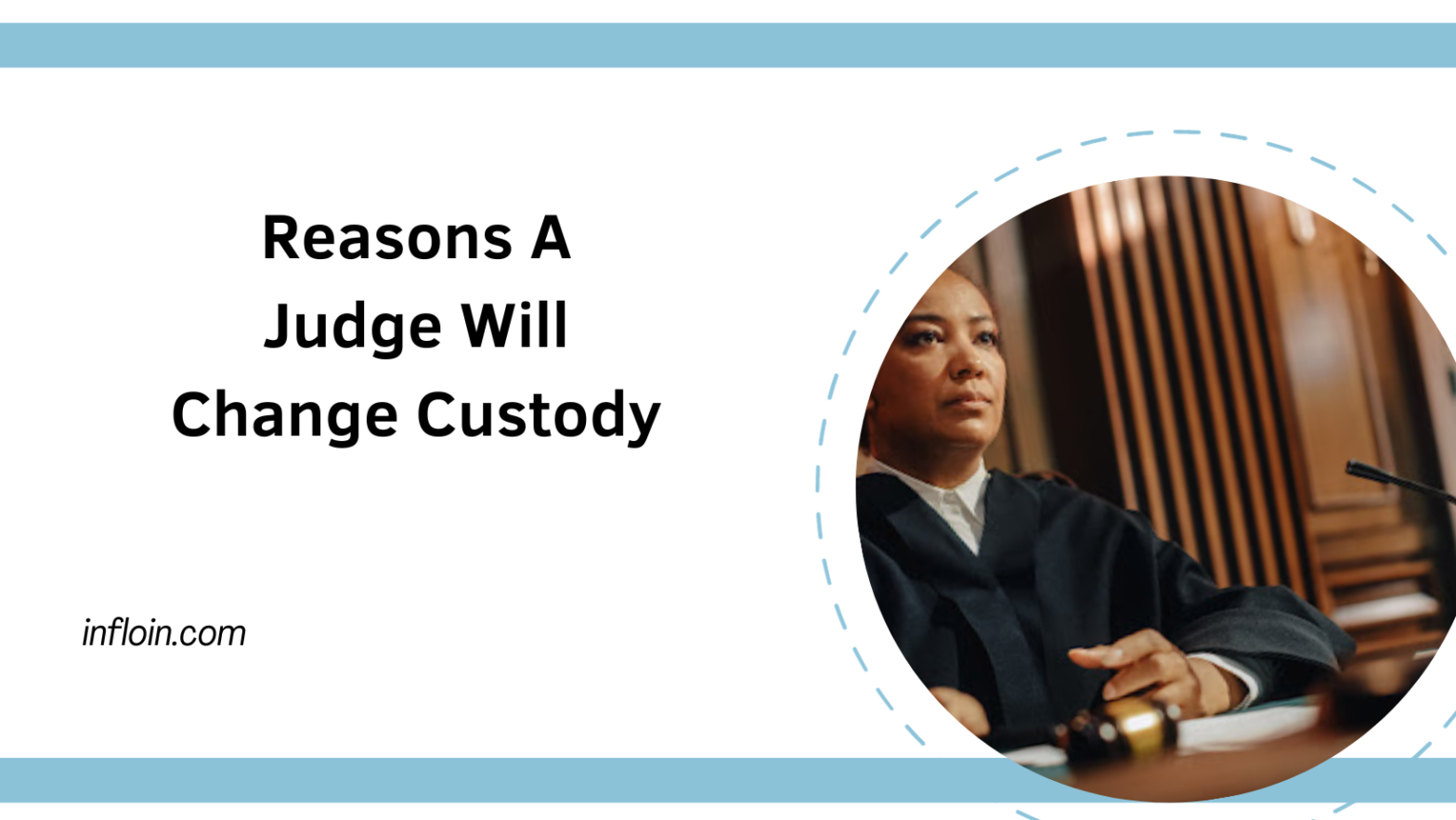Reasons a Judge Will Change Custody – Children need stability in their lives and judges will only grant visitation rights to parents who can demonstrate they lead a stable lifestyle – including having regular employment hours and housing that provides protection from crime.
One parent may seek custody modifications due to significant changes in their living situation, such as moving to a safer neighborhood or eliminating certain harmful substances from their life.
Table of Contents
1. Change in Circumstances
Over time, circumstances can change drastically for parents and their children, both positively and negatively. If a significant shift occurs that impacts on the best interests of a child, one or both parties involved can petition the court for modification to their custody/visitation agreement.
Example: if a non-custodial parent has an addiction issue that endangers their child’s wellbeing, a judge may order the change of custody. On the other hand, if that same parent can demonstrate they’ve overcome their substance use disorder and maintained employment without incident, they could qualify for an altered visitation schedule instead of changing custody entirely.
If a child lives too far from the school of their choice, that may also justify modification. Furthermore, long-term medical treatments only available in another location could require further reconsideration; and special educational or emotional needs could necessitate this process.
Endangerment is one of the main factors for judges to change custody arrangements, often for physical abuse by either a spouse or partner; verbal and emotional abuse are also grounds for change, with severe cases even leading to termination or restrictions of parental rights for responsible parents.
2. Endangerment
One of the main factors a judge will use to change custody is when it becomes evident that either parent can no longer care for their child safely and responsibly. Endangering their safety may take the form of physical, mental or emotional abuse or neglect that causes health complications in a child. If evidence emerges suggesting abuse or endangerment against a parent, chances are the judge will likely strip that parent of his/her parental rights.
Endangerment, according to Arizona law, refers to any act which poses an unreasonable risk of death or serious physical harm for another. Even if no injuries actually resulted, charges of endangerment could still be filed even without anyone actually becoming injured; generally the prosecutor would combine any potential endangerment charges with other offenses like drugs, domestic disputes or theft crimes.
Wanton endangerment is a serious crime of the first degree that may carry substantial jail time if convicted, not to mention that any criminal record you acquire could restrict employment and housing options in the future. A skilled attorney should always be utilized in these instances.
If you are the noncustodial parent and notice that the other party is violating your custody agreement, and your child’s safety is being compromised as a result, file for modification immediately and present evidence that supports your claim.
3. Parental Alienation
Parental alienation is the theory that one parent brainwashes their child to turn them against the other parent. It has become widely used as an argument in custody cases despite most mental health professionals viewing it as “junk science”. Parental alienation has even been used by state child welfare agencies as an excuse for declining to investigate mandatory reporter reports of sexual abuse committed against a father as they suspected that mother manipulation caused these reports of abuse to come in, according to ProPublica reporting.
When a judge suspects parental alienation, they may order reunification therapy or an incremental parenting schedule which gradually gives more and more time with children for both targeted parents. They will also ask to hear evidence from therapists who interviewed both parties involved.
If your ex is trying to distance you from your child, it’s essential that you document their actions. One way is by keeping track of parenting time. Also consider getting character references from those who know you well to testify as to your character as both person and parent; your attorney can assist with locating witnesses who could possibly provide testimony in your favor.
4. Change in Living Situation
Any change that affects a child’s wellbeing could call for modification to a custody agreement. For instance, if one parent struggles with substance abuse and cannot effectively care for their child, that could be grounds to alter the current arrangement; though noncustodial parents could still gain custody if they successfully complete addiction treatment and can show they have become sober.
Significant life changes often involve moving, which may put current custody arrangements under strain. If the custodial parent moves too far from their noncustodial counterpart, current arrangements could become untenable and they should request modifications so their child stays close by submitting an amendment request to keep custody arrangements unchanged.
Changes in employment may hinder one parent from spending quality time with their children, so it’s essential that any potential issues be discussed with an attorney rather than making unilateral agreements without consultation first.
As children develop and change, their needs can change as well. If a child expresses a preference of which parent to live with, it could lead to changes in custody or visitation arrangements. When family members die suddenly and affect children deeply, requiring adjustments in custody arrangements.


